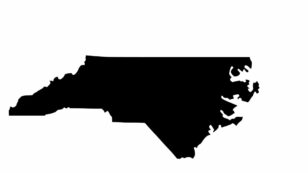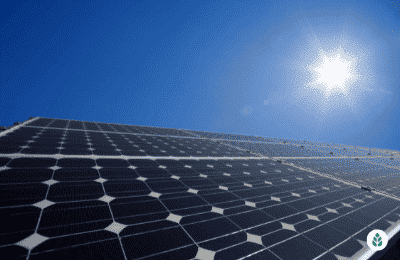
Solar Panel Cost in North Carolina (2024 Local Savings Guide)
In this guide to the average cost of solar panels in North Carolina, you’ll learn:
- How much do solar panels cost in North Carolina?
- How much can you save by going solar in North Carolina?
- What factors determine the cost of solar panels in North Carolina?
Each product and or company featured here has been independently selected by the writer. You can learn more about our review methodology here. If you make a purchase using the links included, we may earn commission.
How Much Do Solar Panels Cost in North Carolina?
The average cost of solar panels in North Carolina is $3.21 per watt. Solar panel systems in North Carolina typically range from $17,976 to $31,458 after the federal investment tax credit is applied.
The national average $3.33, making solar panels per watt in North Carolina cheaper than other parts of the country.

Blue Raven Solar
Pros
- Industry-leading in-house financing
- Competitive pricing
- Excellent reputation
Cons
- Doesn't offer solar batteries (coming 2022)

Blue Raven Solar
Pros
- Industry-leading in-house financing
- Competitive pricing
- Excellent reputation
Cons
- Doesn't offer solar batteries (coming 2022)
The table below provides average prices for solar systems of different common sizes seen in North Carolina. We’ll include totals before and after the federal solar investment tax credit (ITC).
How Does the Current Cost of Solar in North Carolina Compare to the National Average?
The average solar panel cost in North Carolina is $3.21 per watt, $0.12 cheaper than the U.S. average of $3.33 per watt. That means that going solar is cheaper in North Carolina than in most other states.
How Are Solar Costs Trending in North Carolina?
The cost of going solar has been steadily declining for more than a decade. In North Carolina, the price of solar equipment has dropped around 53% in the last 10 years.1 Despite supply chain issues and high inflation causing solar panel costs to tick up slightly in 2022, solar panels are still far more affordable now than they were in 2010.
And even though solar panels have become marginally more expensive, prices for non-renewable energy sources like natural gas, oil and coal have increased more rapidly. That means that solar still makes sense for financially savvy homeowners.
If you’d like to get connected with a trusted, local solar provider, select one of our top contractors below to get a free quote for your solar project.
Watch Below: Learn Why North Carolina Is the Perfect State To Go Solar
How Much Can You Save By Going Solar in North Carolina Today?
Solar panels are an investment. Although the initial cost of switching to solar is considerable, you will almost certainly save money in the long run by offsetting high electric bills.
How you pay for your solar panel system can also impact your long-term savings. Although a cash purchase is the most expensive option upfront, you’ll save more in the long run by avoiding interest payments on a loan.
Below is more information on what you can expect to spend and save with each financing option.
| Solar Financing Option | Upfront Cost | Payback Period | Est 25-Year Savings |
| Cash | $23,594 | 13 years | $24,794 |
| Loan | $0+ | 14 years (at 8% interest rate) | $19,500 |
| Lease | $0 | N/A (you never own the system) | $6,250 |
Cash Purchase of Solar System
Cash purchases will require the highest payout upfront but will save you hundreds or thousands of dollars in interest over time.
Solar panels cost thousands of dollars, so the major downside of a cash purchase is that it is not an accessible option for every homeowner.
Thankfully, if you can’t afford a cash purchase, a revolving solar loan can be a flexible, manageable option for you instead.
Solar Loan
In North Carolina, the state’s Financing Program for Renewable Energy and Energy Efficiency caps revolving solar loan interest rates at 8% with a maximum term of 20 years.
You also have the option to install a solar system with loaned capital, meaning you can get your solar panels for $0 down.
Although you’ll be saving slightly less over time with a solar loan due to interest payments, it is still a suitable option if you’re looking to go solar in North Carolina.
In most cases, the money you save by avoiding a traditional electricity bill can pay off your solar panels. After paying off your solar panels, you won’t have to worry about paying anything for energy as long as your panels are in use.
Solar Lease
In 2017, the General Assembly of North Carolina passed the Distributed Resources Access Act to authorize solar leasing in the state.2 The law aims to rejuvenate participation in solar leasing programs and encourage the creation of community solar facilities, giving residential solar customers more options when going solar.3
However, solar leases have fallen out of favor in the past few years as solar panels have become more affordable.
If you choose a solar lease, your payments will not go toward owning your panels. Instead, you will pay a company monthly and rent solar panels for your home.
Solar leases have a small upfront cost, but that’s because you’re essentially passing the benefits of going solar off to your rental company — since you won’t own your panels when leasing, the company gets to take advantage of any solar rebates, incentives and tax credits.
Overall, your return on investment with a solar lease is far lower than if you own your solar panels.
Below, you can see that a cash purchase provides the greatest lifetime savings, but a loan is still a practical option for many homeowners. Although loans offer slightly fewer savings over the lifetime of your panels, they allow for more flexibility with payments and a lower upfront cost than paying with cash.
How Do You Get the Best Solar Prices in North Carolina?
If you want to get the best solar prices in North Carolina, do your research and take your time to find the best solar contractor in your area.
For starters, you should know what to expect when getting quotes for your solar project. You can check out our solar calculator to get a solar estimate for your home and energy needs.
If you’d like to speak with a solar professional and get started with a free, personalized quote for your solar project, select one of our top-rated solar companies below.
Take Advantage of Local, State and Federal Incentives and Rebates
North Carolina has plenty of local incentives to lower your overall solar system cost. You can also take advantage of tax incentives and rebate programs through your utility company. The chart below offers more information on the top solar incentives in North Carolina.
| North Carolina Solar Incentive | Impact on Solar Panel Cost in North Carolina |
| Property Tax Abatement for Solar Electric Systems | North Carolina has a property tax exemption for solar systems. This means that the state does not tax you for the increase in property value after installing solar panels. |
| North Carolina Net Metering Program | The state’s net metering program allows surplus electricity from your home solar system to be credited at retail price on your next power bill. |
| Duke Energy Solar Rebate Program | Duke Energy customers can qualify for a cash incentive — $400 per kilowatt (kW) for residential systems up to 10 kW — when installing a solar panel system. |
| Financing Program for Renewable Energy and Energy Efficiency | North Carolina has a law that enables revolving loan programs from cities and counties, with a maximum interest rate of 8% and a maximum term of 20 years. |
| Local Solar Incentives | Additional incentives may be available from your county, city or utility company, so be sure to consult your local city and county government websites. |
| Federal Solar Tax Credit | Anyone in the U.S. can take advantage of the federal solar investment tax credit (ITC). For solar systems installed before the end of 2032, 30% of the cost of the system is available as a tax credit on your federal filing. |
Compare Multiple Quotes
It may be tempting to hire the first solar contractor that comes to your house and gives you an estimate, but in doing so, you could be leaving a lot of savings on the table.
The price of a solar energy system will vary depending on the solar company you hire. It’s best to shop around and compare prices before deciding which company you want to go with.
Ask Questions Before You Sign Anything
Make sure to ask your contractor plenty of questions. You can make informed choices and save more money if you better understand the installation process. Before your solar project begins, you should ask your contractor:
- How will equipment and installation costs factor into the total cost?
- What brand and type of solar panels do you recommend for my home, and why?
- What does the warranty cover, and for how long?
- What is the expected timeline for the project?
- How experienced is your company with installing solar power systems?
Asking questions helps you avoid being overcharged or paying for a product that you don’t need.
Research Solar System Brands, Sizes and Types
Once you understand your home’s needs and energy usage, you can look into the brand and system size that would be best for your North Carolina home.
For instance, if your energy usage is below the average for North Carolina, you won’t need as large of a solar panel system as other homeowners.
Another consideration is whether to choose monocrystalline or polycrystalline solar panels. Monocrystalline panels are more expensive, but they are more efficient, so they’re good for homes with limited space. On the other hand, polycrystalline panels are cheaper, but they aren’t as efficient and can be affected by hot temperatures.
Research the best solar panel brands and weigh the pros and cons before making a decision. Most solar panel companies install many different solar panel brands and types, each with its advantages and disadvantages.
You have to be selective when deciding what solar panel brand is the best value for you. Otherwise, you may end up paying for features you don’t need.
What Factors Affect the Cost of Solar Panel Systems in North Carolina?
Not everyone’s solar panel system will fit squarely into the average cost range for North Carolina. That’s because factors like solar equipment, financing options and the installation company you choose can greatly impact your final cost.
Solar Equipment
In North Carolina, the solar system components you need and the brands you choose will both affect your total system pricing.
North Carolina residents are no strangers to extreme weather, with hurricanes and tropical storms hitting the state every year. These weather events can increase the risk of damage to your solar panels as well as the risk of power outages.
Opting for a solar panel brand with a good physical protection warranty and an installation company like SunPower that offers roof leak protection will tend to raise your overall equipment costs. But it is well worth the investment in the long run.
Many solar customers in North Carolina also choose to install solar batteries to provide energy through blackouts, and these can drive up costs by tens of thousands of dollars.
North Carolina experiences 213 sunny days per year — above the national average of 205 days. Because this amount of sunlight should produce enough energy to offset their energy bills, most homeowners don’t need high-efficiency panels. More modestly sized solar panel systems should suffice, meaning lower overall costs.
Solar Financing in North Carolina
The method you use to pay for your solar panels will affect your pricing. Cash purchases, for example, require the largest payout up front but will save you hundreds or even thousands of dollars in interest over time. Solar loans require far less cash upfront but will require you to pay interest, increasing your overall total.
North Carolina has several programs that make solar financing more affordable and appealing. The Financing Program for Renewable Energy and Energy Efficiency sets the maximum loan term for solar loans at 20 years and the maximum interest rate at 8%, lowering overall costs.
Additionally, the Community Solar for Low to Moderate Income Customers and the North Carolina Clean Energy Technology Center’s community solar program both make solar more affordable for low-income households.4
North Carolina Solar Installation Company
The company you choose to handle your solar installation will also impact your overall cost to go solar. Each company sets its rates for labor and equipment, so simply shopping around for installers in North Carolina can have a major impact on your price.
Some of the local solar companies in North Carolina — like 8M Solar and NC Solar Now — tend to have slightly higher equipment pricing, but they often provide discounts to compete with the national companies that buy equipment in bulk. They also tend to provide better customer service than the national companies in the area, like SunPower and ADT Solar.
Additionally, the panel brands offered by your solar installer will affect your system’s efficiency and pricing. SunPower, for example, only installs panels from its sister company, Maxeon. These panels have the highest efficiency in the industry, as well as one of the best overall warranty coverages, but they come at a high cost.
In contrast, the local company 8M Solar installs Tesla and Maxeon panels, so you have more options to choose from to suit your energy needs, warranty preferences and budget.
Additional Considerations and Costs
Although the factors discussed above will have the biggest impact on your overall cost of going solar, there are some other factors to consider that can affect your experience and your price.
- Permits: Every municipality in North Carolina will require a building permit for solar panel installation. The permit fee usually falls between $25 and a few hundred dollars, depending on your local municipality.
- Licenses: Solar installation companies in North Carolina must meet several requirements to be licensed to install solar panels. These include an electrical contractor license, liability insurance, workers comp insurance and more. Generally speaking, the more requirements there are for solar installers, the more your installation will cost.
- Warranties: Every solar manufacturer and installer provides different solar system warranties — usually ranging from five to 25 years for parts, labor, roof leaks and workmanship. The longer your warranty the better, but more comprehensive and extensive coverage usually ups your costs. Note that you do not have to pay for a warranty separately — the coverage is included in your overall system price.
- Homeowners’ Associations (HOAs): North Carolina law prohibits homeowners’ associations and other private entities from restricting your ability to install solar, which means you’re guaranteed to be able to install solar panels in North Carolina.
- Environmental zoning: In some states, environmental zoning laws can restrict solar installation, particularly for ground-mounted solar. The legislation in North Carolina is favorable for solar adoption, so most homeowners won’t have an issue going solar.
Are There Any Maintenance Costs When Going Solar in North Carolina?
Solar panels typically require very little maintenance. However, you should expect to occasionally have a professional clean and inspect your system.
On the unfortunate chance that your solar panels get damaged and need a repair or replacement, you should also be prepared. Below is what you need to know about solar panel maintenance costs.
Panel Replacement or Repair
Everyone with solar panels hopes they’ll never have to pay for a solar panel repair. However, inclement weather damage and faulty equipment can happen. Here’s what to expect if you need solar repairs in North Carolina.
It will cost around $100 an hour to hire a solar professional to repair solar panels. Depending on the extent of the damage, you could pay anywhere from $100 to thousands of dollars for the repair.
Luckily, if your solar panel company offers a great warranty, you can talk to your solar provider about getting the cost of the repair taken care of. Always read the fine print on your warranty before you sign a solar contract so you know when you’ll be covered.
Solar Panel Cleaning
When spring rolls around, North Carolina residents are all too familiar with the pollen that coats every outdoor surface. As a thick layer of pollen builds up on your panels, it can cause them to underperform.
And if you’re lucky enough to live in one of North Carolina’s abundant wooded areas (or just have trees surrounding your home), you should watch out for tree debris building up beneath your panels. This debris can increase the risk of damage to your panels down the road.
That’s why keeping your solar panels clean is a small step that can make a huge difference. If you have a garden hose, you can gently rinse debris off your panels while standing on the ground.
If there is hard-to-reach debris around or on your solar panels, it’s best to call a professional to handle cleaning. This will cost around $200.
Professionals broadly recommend cleaning your panels once or twice a year, but this can vary. We suggest checking in regularly and cleaning your panels as needed.
Solar Panel Inspections
In most cases, you do not need to have your solar panels inspected every year. However, if your solar panels have been underperforming for an extended period of time, it may be time to call an expert to make sure everything is functioning properly.
There are plenty of apps available that let you monitor the performance of your solar panels, so we recommend regularly checking that your panels are performing well.
Typical Costs of Solar Providers in North Carolina
We’ve rounded up the top six best solar companies in North Carolina and outlined below how their price points stack up:
| Solar Company | Price Range ($–$$$$$) |
| SunPower | $$$$ |
| Blue Raven Solar | $$ |
| ADT Solar | $$$ |
| 8M Solar | $$ |
| NC Solar Now | $$ |
| Covenant Solar | $$$ |
If you’d like to get in contact with a trusted North Carolina solar installer, select one of our top-recommended companies below for a free, no-obligation quote.
The cost information presented in this article is derived from a comprehensive analysis, incorporating data from multiple industry sources. The average cost per watt per state was calculated based on figures from Consumer Affairs, Energy Sage, and Berkeley Lab’s Electricity Markets & Policy Department. Additionally, monthly energy consumption and the average monthly cost of electricity were sourced from the U.S. Energy Information Administration, ensuring a well-rounded and accurate representation of the information presented.
FAQ: North Carolina Solar Panel Costs
At EcoWatch, we’re happy to get questions about the process and costs of getting rooftop solar from North Carolina residents. Below are some of the questions we see most often, along with our responses. If you have specific questions that aren’t answered here, reach out to our team of solar experts at solar@ecowatch.com.
The average cost of solar panels in North Carolina is $3.21 per watt, which is slightly below the national average of $3.33 per watt. For a 10.5 kW installation, that would come out to $33,705 (down to $23,594 after applying for the federal tax credit).
No, solar panels are not free in North Carolina. However, based on the numerous incentives and tax credits and the ability for solar to reduce your monthly utility bill, you can expect to save more money than you spend over the lifetime of your solar system.
Of course, North Carolinians are eligible for the 30% federal solar tax credit. North Carolina also offers property tax abatement for solar electric systems, net metering and a financing program for renewable energy projects. Duke Energy customers can also earn $400 per kW for residential systems up to 10kW when they install solar.
Related articles
Top Solar Installers in North Carolina Cities
Comparing authorized solar partners
-
- Industry-leading in-house financing
- Competitive pricing
- Excellent reputation
- Doesn't offer solar batteries (coming 2022)
A+Best Solar Financing2014Trina Solar, Canadian Solar, SolarEdge, Silfab, SunPower25-year manufacturer warranty; 10-year workmanship warranty, 2-year production guarantee
Having trouble deciding? Click below and use our process to receive multiple quotes instead:

 233k
233k  41k
41k  Subscribe
Subscribe 





